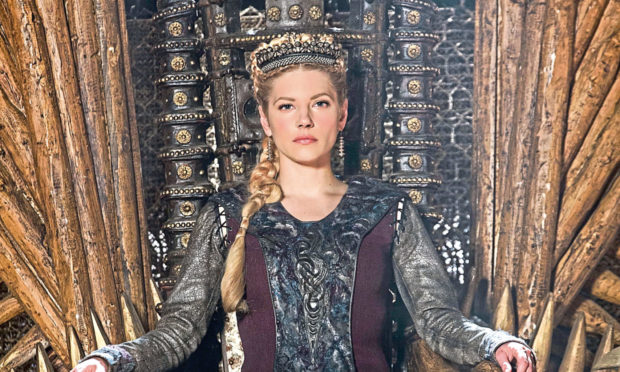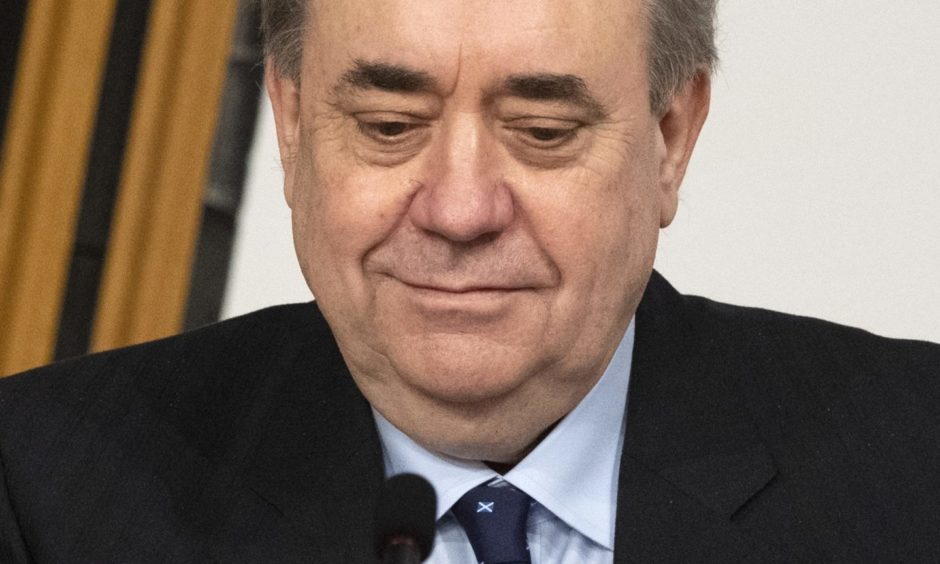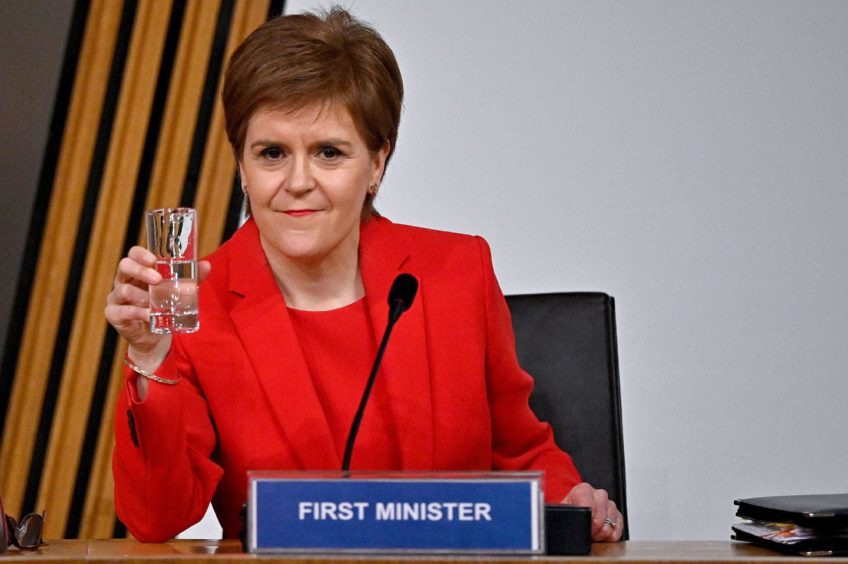I was binge-watching Vikings when I thought I spotted Alex and Nicola. The marauding Norsemen had just launched a savage siege at the gates of Paris in the late 9th Century.
Horrific and gripping, it reminded me of the bloodbath around Alex Salmond and Nicola Sturgeon. Mr Salmond is hardly legendary warrior King Ragnar Lothbrok in Vikings, any more than Ms Sturgeon is the love of his life, Queen Lagertha.
But Salmond-Sturgeon was a formidable political “marriage”. In the good old days they sailed up the Firth of Forth like an invading Viking fleet, putting a terrified and impotent political establishment to the sword.
Now they are pitted as foes in a fight to the death to save their reputations.
It does not get any uglier than Mr Salmond claiming the current leadership is unfit to lead the country to independence.
Or Ms Sturgeon – with a rapier thrust at her ex-boss – saying she searched all day for a sign of regret over his inappropriate behaviour.
The SNP needs an outright parliamentary majority on May 6 as a possible springboard to indyref2. A note of caution here – Mr Salmond also had a Holyrood majority heading into the 2014 referendum.
The SNP is rattling towards being crowned biggest party at Holyrood again, despite the wheels threatening to fall off.
But it is the 10% “don’t knows” in the polls who matter in a referendum, and waverers who flip sides at the last minute.
Pro-independence polls played sweet music to the SNP for months, but their harmony faded after Mr Salmond’s explosive performance at the Holyrood inquiry into his harassment case.
Recent polls showed Yes sliding back below 50%, enough for another Holyrood victory, but it does not guarantee a referendum win – the electoral vote splits unionist support across several parties, but a referendum consolidates it all under one banner.
About 45% voted SNP in the only recent poll which mattered – the December 2019 general election. It was an impressive win in electoral terms, but a similar number voted Yes in 2014 and lost the referendum in Scotland.
The parliamentary committee has been trying to get to the bottom of suspected skulduggery thwarting their every move. But after watching them in action I began to think they would find it difficult to reach the bottom of a paper bag.
Maybe they were hamstrung by tension in a committee divided on political battle lines. This is symptomatic of how rulers in Holyrood are rarely put through the wringer. Doffing deferential caps to ministers in the investigative process does not work – they must stamp their authority and make it a daunting experience.
Beef up these committees, or create powerful independent investigatory bodies from outside, if the Scottish Government cannot be trusted to investigate itself.
MSPs muddling through complicated government procedures are not learned judges with ferocious forensic skills.
They must try to reach conclusions on the balance of probabilities from what is inferred through circumstantial evidence.
We are naturally obsessed with finding killer evidence – the “smoking guns”. It’s hard when Ms Sturgeon’s defensive shield claims conspirators were firing blanks.
But I think I spotted a few “trouts in the milk” along the way, if not exactly smoking guns. It’s a lovely old phrase – odd, but effective. It stretches back to legal circles in 19th-Century America.
A “trout in the milk” is something so glaringly obvious that there can be no plausible defence or explanation to the contrary – even in the absence of cast-iron proof of wrongdoing.
Something else MSPs should scrutinise closely is their symbolic and precious parliamentary mace, which was presented to founding first minister Donald Dewar by the Queen more than 20 years ago.
Tarnished by this crisis of trust, its famous engraved message for the Scottish public has become obscured. The gold and silver mace was stamped with the words “integrity, justice, wisdom and compassion”.
These ideals were foundation pillars for a new and different Scottish parliament, as Mr Dewar emphasised powerfully during his inaugural address.
In another kind of symbolism, Ms Sturgeon permanently hoisted the EU flag above public buildings in a post-Brexit protest – a show of solidarity with the EU and the 62% anti-Brexit vote in Scotland.
While the EU flag fluttered, Ms Sturgeon failed to notice that the saltire next to it was being slowly torn to ribbons.


